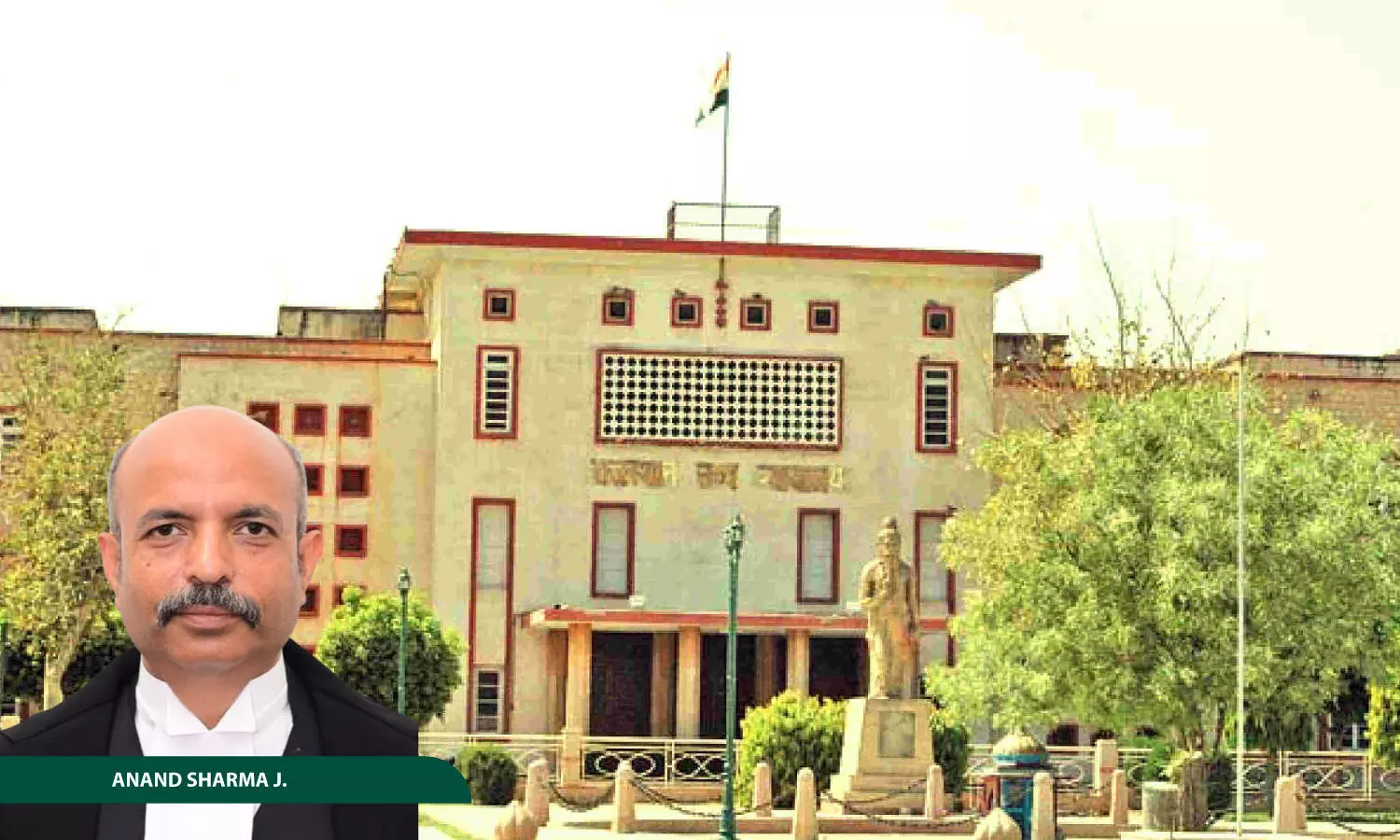
Justice Anand Sharma, Rajasthan High Court
Amount Involved Runs Into Hundreds Of Crores, Not A Routine Matter: Rajasthan High Court Denies Bail In GST Evasion Case
 |
|The Rajasthan High Court was considering a bail application filed by the accused-petitioner seeking regular bail in respect of a case registered under the Central Goods and Services Tax Act, 2017.
While rejecting the bail application of a man in a case of GST evasion of around Rs 704 crore, the Rajasthan High Court has held that where the amount involved runs into hundreds of crores, it cannot be said to be a routine matter and the quantum is directly relevant in assessing the seriousness of the offence and the necessity of custody in such cases.
The High Court was considering a bail application filed by the accused-petitioner under section 483 of BNSS seeking regular bail in respect of an FIR registered under section 132 (10(b)(c)(j) and (l) of the Central Goods and Services Tax Act 2017.
The Single Bench of Justice Anand Sharma held, “Needless to mention that where the amount involved runs into hundreds of crores and has serious implications over the economic fabric of the country, it cannot be said to be a routine matter; and hence, quantum is directly relevant in assessing the seriousness of the offence and the necessity of custody. Therefore, when determining bail in economic offences, the magnitude of the siphoned amount is not merely incidental but rather an integral indicator of the severity of the offence, potential influence over witnesses or the system, and the possible adverse impact on public confidence in financial integrity and the rule of law.”
Advocate Swadeep Singh Hora represented the Petitioner, while Senior Standing Counsel Kinshuk Jain represented the Respondent.
Factual Background
While an investigation of a firm was being conducted by the Officers of the Directorate General of GST intelligence (DGGI), it was observed that transactions from different Firms mainly dealing in the trade of scrap were shown in the accounts whereas many of such Firms were Suo motu cancelled by the GST department on account of being fake/nonexistent Firms. During the course of the investigation, 19 accounts were searched by DGGI, carrying huge transaction amounts amounting to Rs. 1800 crores and quite suspiciously, there were cash transactions of around 800 crores.
It came to light that the accused-petitioner along with one other person was the kingpin of the Gang, who operated various fake firms for the sole purpose of availing and passing on fraudulent ITC to their various clients and was involved in rotation of cash through the monetary transactions, ultimately to avail fake Input Tax Credit (ITC). Further investigation in the matter revealed that the accused petitioner, along with one Rajesh Goyal was involved in the creation of at least 353 fake/non-existent firms with the intent to pass on fraudulent ITC, and in such process, they issued fake invoices/bills without there being any actual supply of goods/ services. The DGGI levelled allegation of commission of offences relating to GST evasion against the accused petitioner, amounting to around Rs 704 crore, which is an offence under section 132(1)(b)(c)(j) and (l) of the Central Goods and Services Tax Act, 2017.
Reasoning
The Bench found that there were serious allegations against the accused-petitioner of creation of at least 353 fake/non-existing Firms with an intent to pass on fake ITC based on the alleged supply shown in the fake invoices and thereby passing on fake ITC to various beneficiaries. “Magnitude of such fake ITC and tax evasion is also quite high around Rs. 704 crores, which is likely to affect the economy to a great extent. Offences alleged against the Petitioners evidently fall within the purview of economic offences”, it said.
The Bench was of the view that the conduct of the accused-petitioner would in itself dis-entitle him from seeking relief of bail, as he had not only suppressed the facts regarding his antecedents, which were having material bearing at the time of consideration of bail, but he had also made a serious attempt to flee away from the custody during pendency of the Bail Application by using his influence and power. “Hence, in the light of the above possibility of his absconding and influencing the witnesses can not be ruled out”, the Bench added.
The contention of the Petitioner that the co-accused Rajesh Goyal had been enlarged on bail by a coordinate Bench was also of no help to the accused-petitioner, as the facts touching the conduct of the accused in the case of the accused-petitioner and of Rajesh Goyal were altogether different. There were no allegations of having criminal antecedents against Rajesh Goyal, nor had he been facing either the allegations of concealment of facts, or even the allegations of making an attempt to flee from the custody during bail application. The Bench also mentioned, “Thus, in economic offences, where the accused is often well resourced and capable of manipulating evidence or evading process, their past and present conduct becomes a crucial factor that cannot be ignored while exercising judicial discretion for bail…Concealment of relevant fact regarding antecedents in itself is a sufficient ground for denying discretionary relief of Bail to the petitioner without even examining merits of entering into the merits of the case.”
Thus, dismissing the bail application of the accused petitioner, the Bench held, “Since while rejecting the Bail Application, custody of the accused-petitioner is resultantly continued, the Trial Court is expected to conclude the Trial within a reasonable time, ensuring right of the accused petitioner regarding speedy trial as guaranteed by Article 21 of the Constitution of India.”
Cause Title: Ankit Bansal v. Union Of India (Neutral Citation: 2025:RJ-JP:23052)
Appearance
Petitioner: Advocates Swadeep Singh Hora, T.C. Sharma, Dinesh Bishnoi, Varuni Agarwal, Siddhant Choudhary
Respondent: Senior Standing Counsel for DGGI Kinshuk Jain, Advocate Jay Upadhyay